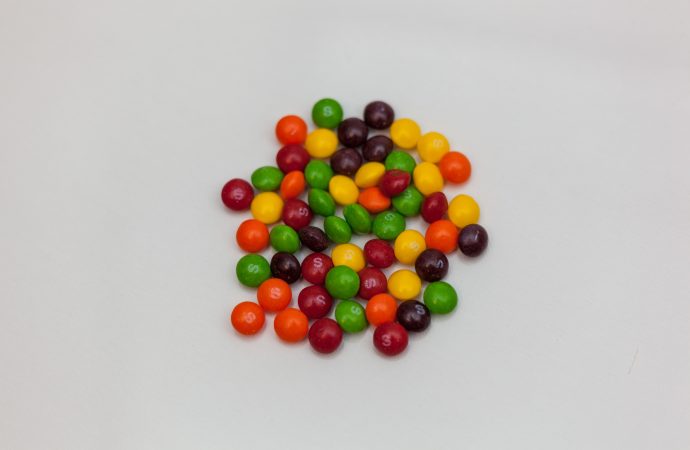Attention all candy lovers! Are your taste buds ready to take on a sweet debate? California has proposed a ban on certain chemicals found in Skittles that have been linked to health risks. While some argue for the protection of public health, others are concerned about the potential impact on their favorite colorful candy. In
Attention all candy lovers! Are your taste buds ready to take on a sweet debate? California has proposed a ban on certain chemicals found in Skittles that have been linked to health risks. While some argue for the protection of public health, others are concerned about the potential impact on their favorite colorful candy. In this blog post, we will examine both sides of the argument and dive into the science behind these controversial chemicals. So sit back, grab a bag of Skittles (or any preferred candy) and let’s explore this sticky situation together!
What are skittles made of?
Skittles are a candy made from sugar, cornstarch, and oil. They are usually green or red in color and have a sour taste. Skittles were invented in 1912 by John W. Spear, who was trying to create a candy that would be harder to steal.
What are the effects of skittles chemicals on humans?
Skittles are a popular candy with many people weighing in on whether or not they should be banned because of the chemicals used in their production. While it is difficult to know the long-term effects of eating these chemicals, some research has suggested that they may have harmful side-effects on humans.
The first study looking at skittles and human health was published in Food Quality and Preference in 2004. The study found that people who ate a lot of skittles were more likely to have high blood pressure. This was likely because the skittle’s manufacturing process uses salt and other preservatives, which can increase blood pressure levels.
A second study published in Environmental Health Perspectives in 2010 looked at how skittle chemicals might affect the brain and nervous system. The study found that when rats were given small doses of two different types of skittle chemicals, they developed problems with their memories. In addition, the rats had problems with their ability to learn new tasks, which suggests that these chemicals could impact brain function too.
While these studies are preliminary and don’t prove that eating skittles will lead to negative health outcomes, they suggest that we should be careful about what we put into our bodies – especially if it comes from something as simple as a candy wrapper.
Is a ban on skittles chemicals necessary?
The debate on whether or not a ban on skittles chemicals is necessary is a hot topic in California. Proponents of the ban argue that the chemicals used to make skittles are harmful to humans and the environment, while opponents say that there is not enough evidence to back up these claims.
The main chemical used in skittles is dichlorophenoxy acetic acid (DCA), which has been shown to be harmful to human cells when exposed repeatedly. According to study published in Environmental Science & Technology, DCA can cause DNA damage and cancer in both rats and mice. Another study published in the journal Food Chemistry found that skittles contain high levels of acetaldehyde, which is a hazardous substance that can contribute to cancer and other health complications.
Proponents of the ban say that these studies provide evidence that DCA and acetaldehyde are harmful, and they believe that banning these chemicals from skittles will protect people and the environment. They also argue that children are more susceptible to harm from these chemicals, so it is important to take action now.
Opponents of the ban say that there is not enough evidence to support these claims, and they question why DCA and acetaldehyde would be harmful if consumed in small amounts. They also say that banning skittle chemicals will have little effect on human health or the environment because other sources of exposure exist.
The pros and cons of a ban on skittles chemicals
There are many pros and cons to a ban on skittles chemicals. On the pro side, those who support a ban argue that these chemicals are dangerous and have negative effects on human health. Specifically, studies have shown that skittles chemicals can lead to cancer and other serious health problems.
On the con side, those in opposition of a ban argue that there is not enough evidence to support these claims. Additionally, they argue that a ban would be too costly and inconvenience consumers, particularly children who enjoy eating skittles.
What happens if California passes a ban on skittles chemicals?
If California passes a ban on skittles chemicals, it could have serious ramifications for the state’s economy. The proposed ban would prevent the manufacture and sale of candy containing the controversial chemical para-aminobenzoic acid (PABA), which is used to give skittles their bright colors. According to the California Department of Toxic Substances Control, skittles are one of the top consumers of PABA. If the ban goes into effect, manufacturers will need to find an alternative product or develop new coloring techniques. This could lead to higher prices for consumers and reduced profits for companies involved in the candy industry. In addition, jobs may be lost as manufacturers retool their operations. Overall, passage of a ban on skittles chemicals would have significant consequences for both Californians and the economy as a whole.
Conclusion
As you may have heard, California is considering a ban on the use of several chemicals found in skittles. This has raised some questions among consumers about whether or not this ban would actually be beneficial, as well as concerns about how it would be implemented. In this article, we will attempt to answer some of these questions and provide perspective on what the proposed ban might mean for both consumers and manufacturers. Ultimately, we hope that our analysis will help you make an informed decision about how you feel about this proposed ban.





















Leave a Comment
Your email address will not be published. Required fields are marked with *